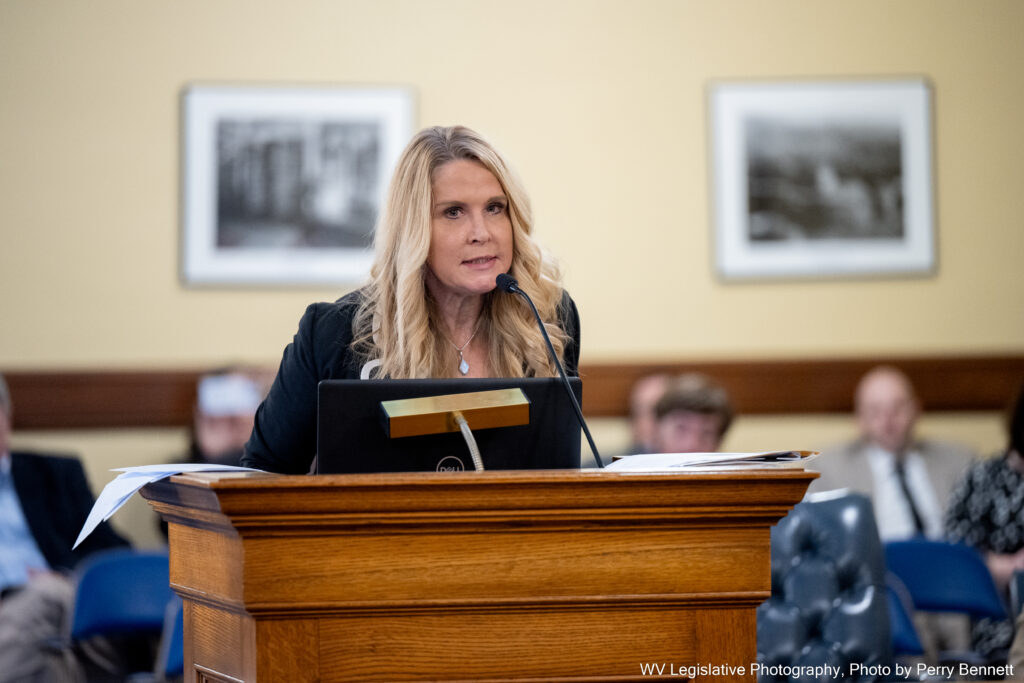Firefighters are more likely to take their own life than to die in the line of duty.
First responder PTSD rates are triple the general population.
Those are just two of the many devastating statistics House Education Committee Chief Counsel Melissa White laid out in a Tuesday interim meeting of the Joint Committee on Volunteer Fire Departments and Emergency Medical Services.
“A journal of Emergency Medical Services reported that 37 percent of EMS first responders contemplated suicide and 6.6 percent attempted suicide, making them 10 times more likely than the CDC average,” White said.
White told lawmakers that combining EMS and firefighter duties made the individual six times more likely to report a suicide attempt than just firefighting duties alone.
“Here in West Virginia, in the month of September 2022 alone, four suicidal first responders were referred to inpatient treatment through the assistance of local non-profit organizations,” she said.
White spelled out research that showed “after experiencing a traumatic incident, just one of those, the CDC reports that first responders may experience the following system symptoms…chest pain and difficulty breathing, signs of shock, nausea, vomiting and dizziness, heightened or lowered alertness, poor concentration and memory, nightmares, anxiety and depression, guilt, grief, blaming others or self intense anger and outbursts, excessive alcohol drug consumption and inability to rest or pacing.”
White told the committee more than two thirds of EMS professionals never have enough time to recover between traumatic events.
“As a result of this repeated, often unprocessed trauma and working conditions inherent in the job,” she said. “Studies consistently report the first responder’s mental health suffers, resulting in increased risk of PTSD, substance use disorders, depression and other mental health conditions, all of which are associated with suicidality is the cumulative effect of the day to day hard to process moments shooting and stabbings, highway wrecks, children harmed, quiet deaths in quiet homes.”
She said in rural West Virginia, a first responder’s exposure to trauma is greater than in urban areas.
“In rural areas, substance use suicide and older adult populations needing EMS assistance is significantly higher,” White said. “Rural EMS take on higher call volumes, often with less resources and that call volume has increased over the last 20 years. Moreover, living in and responding to emergencies in small towns means that first responders may respond to a call of someone that they know or love, and that takes a huge toll on the first responder.”
White said there is a critical lack of training, support and education regarding first responders coping with overwhelming stress and trauma.
“The literature is clear that a majority of fire EMS departments do not provide education regarding mental health risks and symptoms,” White said. “They do not have behavioral health systems in place to help first responders cope.”
She said the long-standing mentality of what many have termed “suck it up” is still pervasive throughout the state and country.
“Even when first responders do realize they need help and do have support accessible,” White said. “They are discouraged from using it or even told what to say.”
She referred to Huntington’s Compass program that directly addresses first responder mental health issues.
“Therefore, a template to begin to support first responders as this exists locally. In addition, other cities have established similar programs and national organizations exist to provide assistance,” she said.
Committee Chair, Sen. Vince Deeds, R-Greenbrier, said White’s presentation demonstrates a crisis in first responder mental health.
“I challenge our Senators or Delegates and those that are hearing these words to do something,” Deeds said. “Because now is the time to do something.”
State EMS Director Jody Ratliff said in a May 2023 WVPB interview, that he is tackling mental health issues head-on.
Ratliff said EMT’s are now using the 988 suicide Crisis Lifeline. He said the “suck it up” mentality “is not what it was.”
“When I was brought up, it was that ‘suck it up’ mentality, we’ve got to move on to the next call,” Ratliff said in the interview. “Unfortunately, that’s still EMS, we still have another call that’s coming, we don’t know when it’s going to stop for the shift.”
Ratliff said, on Tuesday, that a network of first responder critical debriefing teams to deal with the trauma will soon be deployed throughout the state. His hope is “that the older medics out there have to be the leaders in mental health.”




















